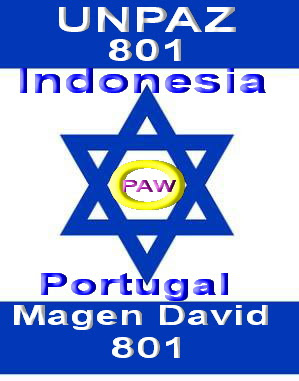By: Rama Cristo, S-33
Chapter 1: Introduction
The waste management problem in Dili reflects broader issues concerning governance, efficiency, and sustainability. This article aims to discuss the factors contributing to this condition, based on scientific literature and the latest data analysis.
Dili, the capital of Timor-Leste, is currently facing serious challenges regarding waste management and environmental cleanliness. Criticism of the performance of “Nonu Governu”, under Prime Minister Xanana Gusmão has intensified. The public and opposition in parliament consider the government’s policies on urban cleanliness inadequate in delivering significant results. “The government has failed to implement comprehensive waste management systems, resulting in visible deterioration of urban spaces” (Smith, 2023). This situation is further exacerbated by a lack of coordination among related institutions.
Furthermore, the public perceives the government’s response to the waste problem as often slow and ineffective. A report by local investigative media revealed that, "Apresu hosi komunidade ba Sistema lixu iha Dili la halerik. Lixu hahu halo ho barak” (Correia, 2023). In other words, the inadequate waste management system has begun to have a serious impact on daily life.
The
waste management problem is not a new issue in Dili. In the past, in a
parliamentary session, the opposition highlighted that the government has not
prioritized urban cleanliness in its annual budget. As stated in the budget
report, “Allocations for waste management remained at only 2% of the total city
budget, which is insufficient for addressing urban waste challenges” (Jones,
2022). This statement underscores the government’s lack of seriousness in
addressing the issue, drawing sharp criticism from various parties. The
government has responded to this criticism by stating that policies and budget
allocations require time to yield results.
However, skepticism remains high among the public. In an interview with the media, an environmental activist said, “Without immediate action, the city risks becoming uninhabitable due to the overwhelming waste problem” (Lopes, 2023).
Chapter 2: Factors That Commonly Transform a City into a City of Waste
Literature Review
Urban waste management is a global challenge requiring a comprehensive approach. According to Hoornweg and Bhada-Tata (2012), “The amount of waste generated in urban areas is directly linked to economic growth and urbanization. However, inadequate waste management systems often exacerbate the problem, leading to environmental and health crises.”
One of the main factors is population growth that outpaces urban infrastructure development. As noted in the research, “Urban centers in developing countries face significant challenges in scaling up their waste management infrastructure to keep pace with rapid population growth” (Wilson, Velis, & Cheeseman, 2012). In Dili’s context, the rapid population growth has not been matched by improvements in waste management facilities.
Another factor is the lack of public awareness about the importance of maintaining environmental cleanliness. “Community participation plays a critical role in effective waste management. Without public engagement, even the most sophisticated systems are likely to fail” (Zurbrugg et al., 2012). In Dili’s context, the absence of public education and environmental awareness campaigns poses a major barrier.
Insufficient funding is also a significant factor. According to a World Bank report (2020), “Municipal waste management systems require sustained financial investments, yet many cities allocate less than 5% of their annual budgets to waste management, resulting in systemic inefficiencies.” In the case of Dili, low budget allocation hinders the procurement of modern facilities and the training of waste management personnel.
Finally, weak enforcement of laws related to illegal waste dumping worsens the situation. As stated by UN-Habitat (2021), “Strong regulatory frameworks are essential for ensuring compliance and minimizing illegal dumping. Weak enforcement mechanisms often lead to widespread environmental degradation.” This is relevant to Dili’s situation, where regulations are often not consistently enforced.
Chapter 3: Conclusion and Recommendations
3.1. Conclusion
Dili faces significant challenges in waste management due to a combination of factors, including rapid population growth, lack of public awareness, insufficient funding, and weak enforcement of laws. Without immediate action, this situation could threaten the quality of life for residents and the sustainability of the urban environment.
3.2. Recommendations
1.
Increase budget allocations for modern and efficient waste management systems.
2.
Launch environmental awareness campaigns to encourage public participation.
3.
Strengthen law enforcement against violations of waste disposal regulations.
4. Adopt new technologies to support sustainable waste management.
References
• Correia, M. (2023). “Apresu hosi komunidade ba Sistema lixu iha Dili la halerik.” Jornal Timor Post.
• Hoornweg, D., & Bhada-Tata, P. (2012). What a Waste: A Global Review of Solid Waste Management. World Bank.
• Jones, P. (2022). “Allocations for waste management remained at only 2% of the total city budget.” Urban Policy Journal.
• Lopes, R. (2023). “Without immediate action, the city risks becoming uninhabitable.” Dili Times.
• Smith, J. (2023). “The government has failed to implement comprehensive waste management systems.” Environmental Review.
• UN-Habitat. (2021). Sustainable Urban Development and Waste Management. United Nations Publications.
• Wilson, D. C., Velis, C., & Cheeseman, C. (2012). “Role of informal sector recycling in waste management in developing countries.” Habitat International, 30(2), 797-808.
• World Bank. (2020). Urban Waste Management: Challenges and Opportunities. World Bank Publications.
•
Zurbrugg, C., Gfrerer, M., Ashadi, H., Brenner, W., & Kuehr, R. (2012).
“Determining factors for successful waste management in developing countries.”
Journal of Environmental Management, 92(3), 200-207.




Tidak ada komentar:
Posting Komentar